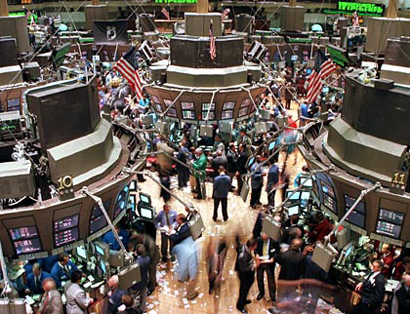 A key component of financial services is the buying and selling of investment instruments—chief among them is the trading of equity also known as stocks. The meeting place for buyers and sellers is an exchange, defined as a marketplace for trading a wide variety of financial instruments.
A key component of financial services is the buying and selling of investment instruments—chief among them is the trading of equity also known as stocks. The meeting place for buyers and sellers is an exchange, defined as a marketplace for trading a wide variety of financial instruments.
The function of an exchange is to allow banks, investors and trading firms to safely conduct financial transactions via market data, bids and platforms where price and other related information is publicly shared. Specifically, an exchange can facilitate the trading of equities, commodities, derivatives such as futures and options, bonds, and indexes, among other financial instruments.
An exchange can take the form of a physical, centralized location where transactions are negotiated via human traders or via electronic platforms, digitized market data and high-speed networks. Both modes are intended to provide level playing fields to publicly trade securities. As technology has advanced, traditional outcry markets in the US and Europe have become fully electronic, allowing for trades to be conducted in a faster, more efficient manner.
The primary stock and derivatives exchanges governed by regulators in the US are NYSE Euronext, Nasdaq OMX, the markets owned and operated by the CME Group Inc., and the BATS Exchange.
Need a Reprint?
Leave a Reply